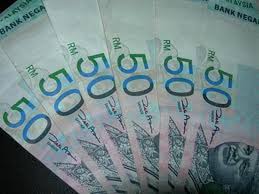Friday, 23 October 2015 17:35
 TOKYO: The euro held on to losses and emerging currencies soared Friday after the head of the European Central Bank (ECB) hinted at fresh stimulus measures for the stuttering eurozone economy.
TOKYO: The euro held on to losses and emerging currencies soared Friday after the head of the European Central Bank (ECB) hinted at fresh stimulus measures for the stuttering eurozone economy.
The single currency plunged against the yen and dollar after Mario Draghi said Thursday the ECB could expand its bond-buying programme or further cut record-low interest rates to fight tepid inflation and sagging growth across the 19-member bloc.
With confidence buoyed by expectations of an easier borrowing environment, Malaysia’s ringgit, Indonesia’s rupiah and the South Korean won each advanced more than one percent against the dollar.
“Draghi’s speech was as dovish as it could be without actually further easing monetary policy, with a pledge to ‘re-examine’ the ‘degree of monetary accommodation’ at the December meeting,” IG Ltd. analyst Angus Nicholson said in a note.
The ECB chief’s comment inflamed talk the bank will ramp up its already vast bond-buying scheme — essentially printing more cash.
The euro after the comments to $ 1.1111 and 134.10 yen in New York Thursday, well down from $ 1.1339 and 135.65 yen in Asia earlier in the day. On Friday in Tokyo it was at $ 1.1113 and 134.13 yen.
The dollar traded at 120.68 yen against 120.69 yen in New York.
With the US Federal Reserve expected to delay a planned interest rate hike until next year, and China and Japan forecast to ramp up their own stimulus soon, higher risk assets such as global equities and currencies have enjoyed a rally.
The ringgit soared 1.5 percent against the dollar Friday and the rupiah gained 1.05 percent. The won was up 1.16 percent with news that the country’s economy grew more than expected in July-September also providing strong support.
The Thai baht along with the Singaporean, Taiwanese and Australian units also booked solid gains against the greenback.
Emerging market currencies have been hammered for most of this year on expectations the Fed would lift interest rates, with investors withdrawing their cash to the United States looking for better, safer returns.
However, they have rallied this month as the US central bank moves away from its previously hawkish stand owing to concerns about the impact of a rate on the already fragile global economy.



























